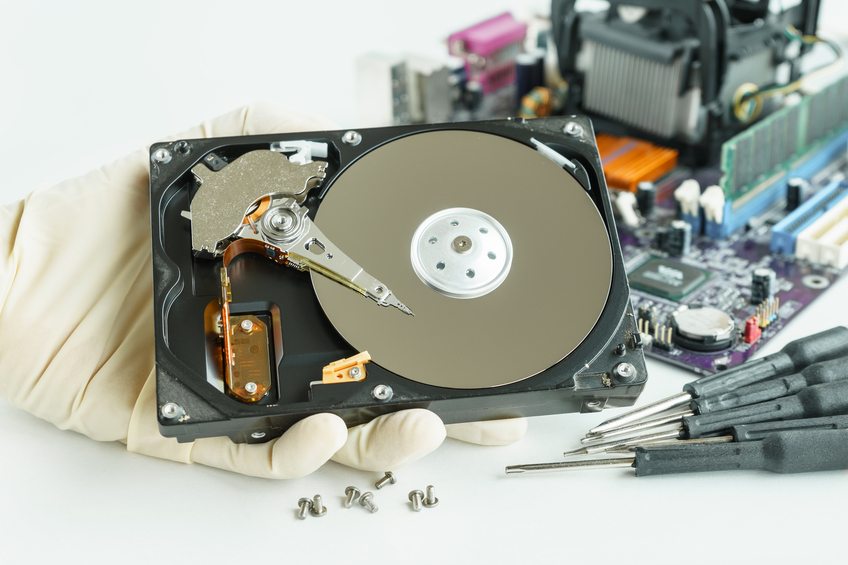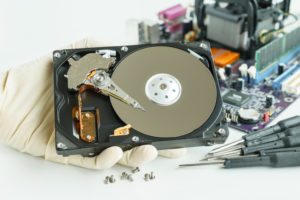
What Do Data Recovery Technicians Do?
Data recovery services have become big business in the recent past as more and more individuals and Brisbane based companies like Computer Fixperts to seek to recover data that was lost due to hard drives becoming corrupted, crashing altogether, or being accidentally deleted and wiped from the drive sectors. Recovering data from flash drives and cellular phones has also become the norm. The fact that a lot of the lost data is so valuable makes the role of a Data Recovery Technician very important. In years gone by, people had to settle with the fact that their data was basically gone forever when hard drives malfunctioned, costing them in some cases millions of dollars since the data could not be replicated. Nowadays, with advanced technology at our fingertips, data recovery can be done fairly easily, even though the process takes time, and the Data Recovery Technician is the one who is charged with the responsibility of recovering data from failed drives.
While the role of a Data Recovery Technician may seem to be as clear-cut as simply recovering data, there is a lot more to what that person actually does. In fact, there are many different methods for recovering data. This article will focus on the various roles that are placed firmly in the hands of a Data Recovery Technician. Having a heightened understanding of this person’s roles will make us all appreciate the job that has to be done. Please note that the roles are not written in any specific order.
Reception of Customers
Some businesses place Data Recovery Technicians right before the customers in a sort of customer service position. When customers come in to have their data recovered, it is the technician’s duty to receive the equipment and book the jobs as well as explain how the jobs are priced. This is basically the first stage of customer service which will impress upon the customer whether or not he wants to do business with the company or would rather go elsewhere. All other information that is crucial to the recovery process must also be collected by the technician, like how the hard drive got damaged and so on.
Diagnose and Image Various Types of Media
There are many different types of media from which data can be recovered. The technician should be able to diagnose all the different types of media in an attempt to see the extent of the damage and ascertain how well data can be recovered from them. Once the diagnosis has been completed and data recovered, he has to make an image of the contents of the failed media onto a separate device. He will, therefore, have to be familiar with mechanical, logical, deleted, and firmware recovery.
Perform Quality Assurance and Integrity Testing
Quality assurance is one of the final steps that the technician would take to ensure that all completed jobs meet the required standards of operation. This entails checking the quality of the recovered files as well as the media from which the data was recovered. Testing the integrity of the recovered data is also important as the imaged data should be the same as that on the failed device. Sending a sample of the recovered data to the customer for verification purposes also aids in testing the integrity of the files.
Receive and Ship Customer Equipment and Media
In addition to receiving the various media that come in for data recovery, the technician is responsible for shipping them back to the customer. The processes of receiving and shipping are quite simple in theory. The customer sends his device in for data to be recovered from it. A work order is generated and the Data Recovery Technician collects the device from the receivables area, if he did not personally receive it from the customer, and brings it to the lab for analysis. After the analysis has been completed, he goes through the motions of recovering the data. Once the data has been successfully recovered, the customer is advised and a sample of the data is sent to the customer for verification. Once verified, the retrieved data is transferred to another device as stipulated by the customer, the work order is closed, and the technician then ships the device back to the customer after payment has been made.
Exchange or Procure Parts for Failed Devices
There are a number of instances when recovering data from failed devices requires parts to be exchanged so that the data recovery process can occur. In some instances, the required parts may not be in stock and have to be procured according to set company guidelines. The process of procurement generally involves searching for the needed parts and obtaining pro forma invoices from at least two sources of the parts. Once it has been established who the preferred supplier will be, the technician has to go and obtain the parts and then swap out the defective parts in the failed devices with the new parts. Once all the parts that need to be exchanged have been sorted out, then the data recovery process can begin.
Communicate Status Updates of Recovery Process
As the recovery stages progress, it is vital that the Recovery Technician make a note of what happens and pass the information on to the customer and whomever else needs to know. Keeping customers in the loop helps to calm their nerves and adds to the confidence that they place in the technician. The periods between which said communication is issued varies according to how the data recovery process progresses. The important thing is that the customer is aware of what is happening to his device and has a better idea of how soon he will be able to have it back along with the recovered data.
Log Customer Feedback
After each job, customers generally have comments that they wish to share about the service they received. The technician needs to write down or log all feedback received. The feedback may come in the form of emails, regular mail, phone call, or by filling out an online form. Feedback is usually logged into a database for future reference. The feedback that is received normally speaks to the speed of service, reliability, support, and whether or not they are satisfied with the data that was recovered. Failure to log such feedback would prevent the data recovery company from being able to assess the effectiveness of the Data Recovery Technician as well as the feelings of their customers. The issue of how a customer perceives a company can make or break the business.
Back Up Customer Data to Requested Media
Media replication is the desired result of recovered data. Customers want their recovered data to be backed up to other devices of their choice. It is the responsibility of the Data Recovery Technician to make said backups to the chosen media. The backup media varies from customer to customer and includes external hard drives, RAIDs, SSDs, flash drives, memory cards, digital drives, and so on. Also, the technicians tend to perform what’s known as physical or logical data recoveries. The backup device should have enough space to hold the recovered data. Backing up the data to a separate media source provides redundancy in the event that the previously failed drive fails again and the data becomes unreadable. This fail-safe measure is accomplished by the technician using the requisite hardware and software to copy the recovered data from one device to another.
Experience With the Latest Data Recovery Tools
As a recovery technician, the individual must be familiar with the latest data recovery tools that are used in the field. This means he should have the ability to use and understand the software, hardware tools, and systems as needed to diagnose and manipulate the customer’s hardware. There are numerous data recovery tools available and each company uses the one(s) that they feel will give them the best results. Most companies expect technicians to be knowledgeable where this concerned. In the case of new equipment, the technician receives training on how to use it. Having the requisite experience, on the other hand, saves time and money associated with training and the data recovery company generally want someone whom they can throw into the system from the start. Knowing the ins and outs of these tools makes his job a lot easier and hence creates more satisfied customers.
Perform Scheduled Calibration and Maintenance of Lab Equipment
As required from time to time on a scheduled basis, the lab equipment used in the data recovery process needs to be calibrated. With use over time, recovery devices start varying from the standard deviation permissible for them. This causes inaccurate analyses of failed media which may lead to the wrong procedures being used to recover the data from the devices. Regular calibration ensures that the data recovery equipment always produces the desired results.
Financial Administration and Cash Handling for Data Recovery Laboratory
Some companies require that the Data Recovery Technician collect monies that customers pay for their recovered data on behalf of the entity. He will also have to keep the accounting books by making accurate entries for each transaction. This helps to keep the money that is earned from this aspect of the business operations separate and apart from the rest of the business.
Keep Accurate Inventory Records
It is important that accurate records be kept of the hard drives that need data recovered from as well as those that have already had data recovered from them. Failed media that have already had their data recovered must also be tracked. In addition, the inventory of spare parts on hand is very crucial. This involves taking a physical count of the parts on hand and comparing it to what the inventory database says. If he realises that there is a difference, he will have to manually recheck the stock.
Check Hard Drive Warranties
Some of the hard drives that are sent in for data recovery may still be under warranty. Hard drives that are still under warranty should be taken back to the store they were brought from or returned to the manufacturer if the warranty makes that stipulation. Working on under-warranty drives voids the warranty, making it impossible for the drives to be returned to the store or manufacturer for repairs or a replacement. Out of warranty hard drives can be accepted for repair and data recovery. It is up to the Data Recovery Technician to ensure that he only works on non-warranty drives.
Perform Repairs on Hard Drives
Hard drives work in complex ways and when they fail they need professional assesment. Every so often, hard drives that are brought in for data recovery need to be repaired in order to access damaged areas of the hard drive. In order to properly effect repairs, the technician must have electronic soldering skills. It is his duty to repair hard drives by removing components that no longer work, like resistors and capacitors, and replace them with working ones. He must also be able to disassemble hard drives if that becomes necessary. This means that he has to have the right tools. Some repair jobs are quite simple, like replacing controller boards, or they can be more complicated, like replacing read-and-write heads.
Provide Oral and Written Testimony in IT Forensic Investigations
There are times when data needs to be recovered from failed devices for the sake of law enforcement agencies who have legal cases before the courts. The technician may be called upon to provide oral and written statements and testimony of the data he recovered from the devices that were presented to him. In some cases, the devices may have been deliberately damaged to prevent them from being used, or the data may have been wiped from the hard drive using hard-core data deletion software. The Data Recovery Technician will have to use all the tools at his disposal to recover the data that is needed as evidence in the cases. In some instances, the cases may be related to fraud, identity theft, online piracy, spam, and other IT related crimes.
Prepare Product Evaluation Reports
Product evaluations help in creating statistics related to the various media that are brought in for data recovery. Even if he does not do it all by himself, the Data Recovery Technician has to assist in preparing and conducting product evaluation reports and making comparisons of specifications. The report will outline the brands of failed media, the storage capacities, the types of failure that the devices experienced, and the ease with which the data was recovered. There will also be notes as to whether or not repairs had to be effected on the various media and if parts had to be procured for the repair process. The evaluation reports will also aid in determining the level of success, or not, of recovering lost data.
Final Note
The job of a Data Recovery Technician can be easy or hard depending on the difficulty of the recovery job. As seen by the various duties he has to perform, the role takes on technical as well as administrative functions. The overall role, however, of the technician is recovering data from failed drives. That is accomplished by performing all the duties associated with the position. Data may be recovered for individuals, companies, and even law enforcement agencies involved in criminal cases. Being a Data Recovery Technician can be a very rewarding job, knowing that you were able to make someone who thought all was lost happy again, as well as helping to put criminals behind bars. Why not check out the many ways to avoid costly data recovery.


